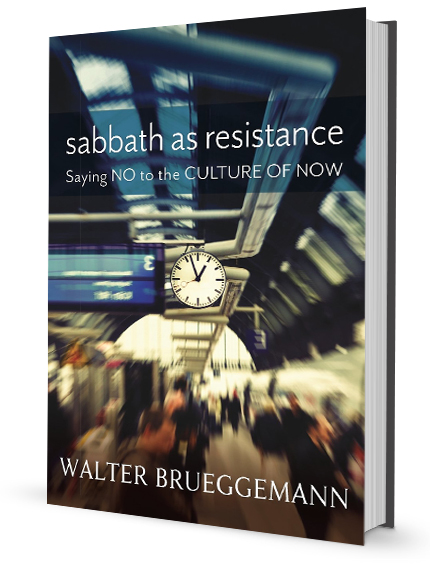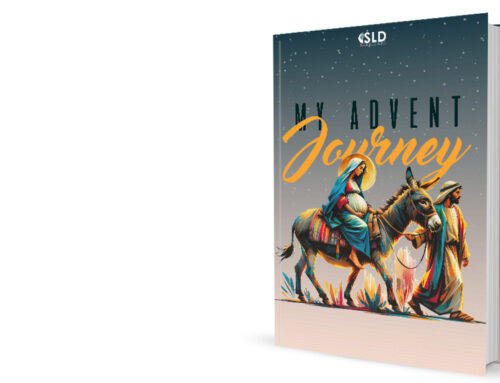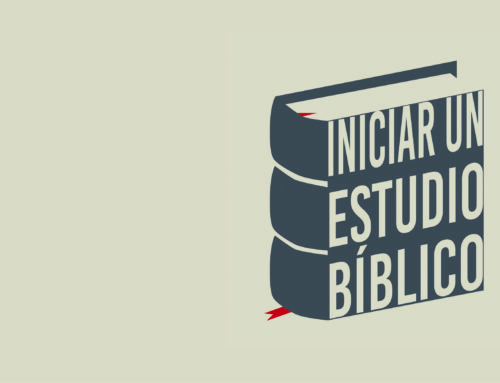 God brings the Israelites out of Egypt and His first course of action is to introduce the people to the rhythm of Sabbath. This rhythm shows up in the Fourth Commandment:
God brings the Israelites out of Egypt and His first course of action is to introduce the people to the rhythm of Sabbath. This rhythm shows up in the Fourth Commandment:
“Remember the Sabbath day by keeping it holy. Six days you shall labor and do all your work, but the seventh day is a sabbath to the Lord your God. On it you shall not do any work, neither you, nor your son or daughter, nor your male or female servant, nor your animals, nor any foreigner residing in your towns. For in six days the Lord made the heavens and the earth, the sea, and all that is in them, but he rested on the seventh day. Therefore the Lord blessed the Sabbath day and made it holy.” Exodus 20:8-11 (NIV)
Prior to the 10 Commandments, the rhythm is introduced when God starts providing quail and manna for the Israelites (Ex. 16). For 5 days they were to go and gather enough food for everyone, but on the 6th day, they were to get a double portion, so the 7th day could be dedicated to rest. This was a stark contrast to the lives they had in Egypt under Pharoah’s rule.
This is the backdrop to Walter Brueggemann’s book Sabbath as Resistance: Saying NO to the Culture of NOW. The book compares the god of Egypt (Pharoah) and his endless need for production to the emancipator God, who wants to free us from systemic anxieties to produce by establishing a work/rest rhythm. Brueggemann writes, “Thus the Sabbath commandment is drawn into the exodus narrative, for the God who rests is the God who emancipates from slavery and consequently from the work system of Egypt and from the gods of Egypt who require and legitimate that work system.” (p. 2)
The Sabbath Commandment then is a response to the first three commandments and a means to help fulfill the last six.
God has complete confidence in the fruit-bearing, blessing-generating processes of creation that have been instituted. God exhibits no anxiety about the life-giving capacity of creation. God knows the world will hold, the plants will perform, and the birds and fish and beast of the field will prosper. Humankind will govern the earth in a generative way. All will be well, and all manner of things will be well.
Having no other gods than the emancipator God means not living into the systems those false gods establish. Pharoah’s system is endless production, endless restlessness and a constant need to make more and fill the storehouses because he’s not sure what tomorrow holds. In Pharoah’s system, Pharoah worries about the future. In contrast, God creates the world and then He rests! Brueggemann writes, “God has complete confidence in the fruit-bearing, blessing-generating processes of creation that have been instituted. God exhibits no anxiety about the life-giving capacity of creation. God knows the world will hold, the plants will perform, and the birds and fish and beast of the field will prosper. Humankind will govern the earth in a generative way. All will be well, and all manner of things will be well.” (p. 29) AMEN! If we are made in the image of this God, then we know that we can exit the production system and rest and know when enough is enough. We live out the image of God and so we know we are enough. In so doing, we put God first.
Reading after the Sabbath commandment, the remaining commandments reflect on how we are to treat others. Brueggemann suggests that in Pharoah’s system of production and anxiety, the people around you are bound to be reduced to competitors. Thus, those that live by that system:
- “are bound to dishonor their parents and non-productive kin;
- are bound to engage in killing violence, because others are the threat;
- are bound to reduce sexual interaction to exploitive commodity;
- and bound to usurp from others if it something they want;
- are bound to engage in distortion and euphemism to gain advantage;
- are bound to be committed to acquisitiveness.” (p. 30-31)
But those that observe the Sabbath see others as image bearers and not as competition. “…those who participate in it (Sabbath) break the anxiety cycle. They are invited to awareness that life does not consist in frantic production and consumption that reduces everyone else to a threat and competitor. And as the work stoppage permits a waning of anxiety, so energy is redeployed to the neighborhood. The odd insistence of the God of Sinai is to counter anxious productivity with committed neighborliness.” (p. 27-28)
Brueggemann shines a light on today and says that we are once again, in a sense, living under Pharoah’s rule. He suggests that the way we live, “is the way of commodity that is the way of endless desire, endless productivity, and endless restlessness without any Sabbath.” This creates anxieties to produce and so we’re afraid to experience true Sabbath.
“In our own contemporary context of the rat race of anxiety, the celebration of Sabbath is an act of both resistance and alternative. It is resistance because it is a visible insistence that our lives are not defined by the production and consumption of commodity goods. Such an act of resistance requires enormous intentionality and communal reinforcement amid the barrage of seductive pressures from the insatiable insistences of the market, with its intrusion into every part of our life from the family to the national budget….
But Sabbath is not only resistance it is alternative. It is an alternative to the demanding, chattering, pervasive presence of advertising and its great liturgical claim of professional sports that devour all our “rest time.” The alternative on offer is the awareness and practice of the claim that we are situated on the receiving end of the gifts of God.” (Preface)
In our fast paced and anxious world this book invites us to give up our false gods and rest in the God who creates and the God who liberates the enslaved.
Written by Matt Hodgson, Spiritual Life Development Coordinator for the SLD Department
For more in the Sabbath Series click here




